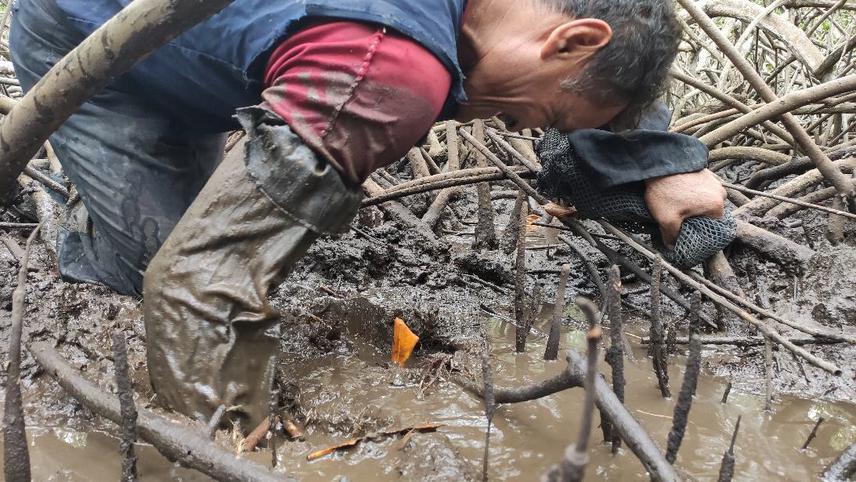Indira A. L. Eyzaguirre
Other projects
Mangroves provide ecosystem services to communities influencing human well-being, primarily in countries with economies dependent on natural resources, such as in South America. This project aims to implement a participatory monitoring system pilot to access conservation strategies through local knowledge to the strengthening the resilience and highlight the importance of conservation in traditional communities in two marine protected areas in Brazil and Peru. The expected results will be the implementation of the following actions: i) access to traditional knowledge of mangrove, ii) obtain vulnerability index and seasonal calendar, and iii) access to the environmental history of mangroves.

Identification of socio-economic activities. Artisanal crabber. El Bendito Community, Tumbes, Perú. 2020. © Indira Eyzaguirre.
The present project is based on the Clean-Development-Mechanism in favour of participatory and monitoring to mangrove conservation through identification and climate change mitigation opportunities for strengthening the resilience and adaptation of coastal-estuarine communities. The implement of the participatory monitoring system and socioeconomic modelling on two mangrove forests will allow knowing management and monitoring the areas of use of marine resources based on traditional knowledge to save the memory and helps to have perspectives of adaptations and strengthening of resilience in the future. The first action will contribute with access to:
i) the preferences and motivations of stakeholders that manage those resources and influence to human well-being,
ii) participatory identification of the mangrove ecosystem services,
iii) social networks and relationships among the stakeholders. The second action will obtain the necessary information about the indirect and direct drivers of climate change and the seasonal calendar of crab and shellfish activities to probe the access to the conservation opportunities that the mangrove societies will have to participate.
On the same way, will be identified vulnerability index through Driving Forces-Pressures-State-Impacts-Responses framework through a focus group, household survey, and other methods. Finally, with access to the environmental history of land-use change, mangrove socioeconomic data, the conflicts and governance of the mangroves will serve to implement a cost-benefit framework modelling for the access to conservation strategies such as reducing emissions from deforestation and forest degradation (REDD+) and Land-Use-Change (LUC). This proposal pretends to recognize and value socio-ecological knowledge on mangrove management and highlight the importance in the conservation of some of the most productive ecosystems and most adapted to the effects of climate change.